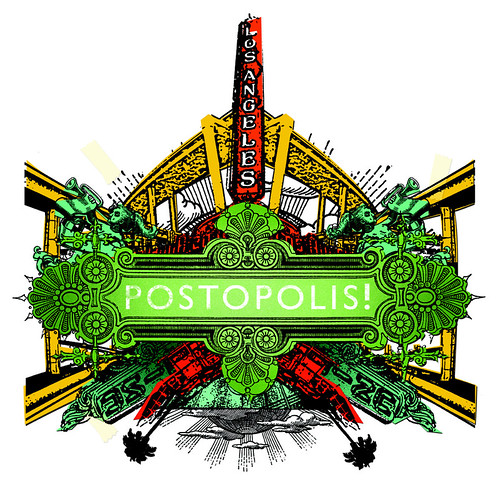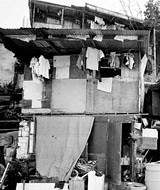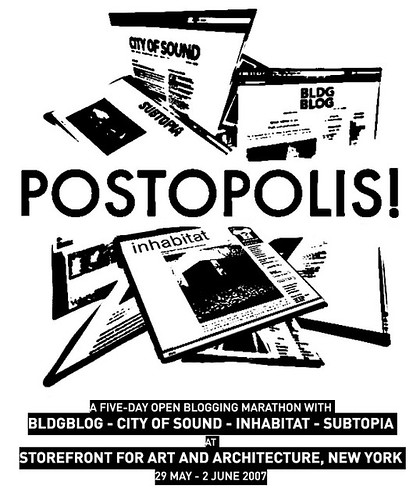Padua's Berlin Wall

[Image: The wall built on the outskirts of Padua to seal off the Serenissima housing estate. Photograph: Marco Bruzzo/EPA - Guardian, 2006.]
Padua is an old city in Italy, home to one of Europe's oldest universities where Galileo once taught mathematics and historic artworks were produced by greats like Giotto, Donatello and Mantegna. Today, unfortunately, it has earned "the distinction of having the most dangerous housing development in northern Italy." Others have stated, it is "the worst possible example of failed integration." The issue is how this quiet old city has turned into an urban ghettosphere by a massive influx of African migrants in the last few decades, for whom the local economy has failed to accomodate. Right now, according to this article, some 210,000 people live in Padua, of whom 20,000 are legally resident non-EU citizens. A further 30,000 non-EU residents live in the surrounding province, which has a total population of almost a million. There are also several thousand asylum seekers, all hoping to be given leave to stay. But Padua has become a crime ridden urban battlezone between rival gangs, drug dealers, and populations of migrants who still lack the ability to work in Italy legally, to vote, and are essentially lost in an endless line waiting for some form of national legalization.
So, instead of critically re-examining the neccessary legal mechanisms for managing the multi-ethnic fabric of a modern Padua society, officials, in just a few hours, erected a msssive steel wall at the outskirts of Padua, to further isolate the ghettosphere of the Serenissima housing estate from nearby residents who felt threatened by an atmosphere of constant violence. Described as "a large and ugly barrier stretching for 84 metres, three metres high and made of thick steel panels, there is a police checkpoint at the entrance as well as CCTV cameras."
Critics are equating it to the concentration camps and Jewish ghettos created by the Germans decades earlier, and saying this action is a "surrender to criminality." Is it simply using militarization as a crutch, an apartheid-like segregation out of convenience?
The social solidarity minister Paolo Ferrero had this to say:
"The title of today's "Corriere della Sera" makes one think that I proposed to build walls and ghettos in all cities. This is not only false but completely contrary to the proposal I presented in an assembly of hundreds of immigrants in Padua on Sunday. [...] The initiative of the Padua town administration I positively commented was the project of the closure of the Via Anelli ghetto by way of finding accommodation for its inhabitants in other parts of the city: all this with the full consensus of the immigrants and the support of the town's social services. This positive policy dismantling ghettos and favouring social integration should be adopted also in other cities to resolve similar situations. The "wall" was actually built because during this dismantlement of the ghetto a conflict with the inhabitants of confining buildings exploded; moreover they tried, in this way, to limit the massive presence of drug dealers".
Nevertheless, the wall won't solve their problems in this city or any other for that matter. So, what legal means do they plan on examining - and quickly - to deal with the core social implications of ghettoization and immigrant isolationism? Where is that debate, and will the immigrant community be there, or too trapped behind this wall to attend?







9 Comments:
This is scary in the way it sounds like these city officials got directly inspired by the recent French film, Banlieue 13. Or, even scarier or sadder if they have never heard of this film. I can't decide.
Hello, Padua is my city and some years ago I wrote the thesis degree in Political Science, field of Sociology about these things “Social tensions and housing policies: immigrants in Veneto region” and in the last chapter I wrote about via Anelli.
I did a long research about the story of these flats and I passed some time here with the immigrants that lived here..too much time, the place was and it is horrible.
What I would like to say is that for about 10 years the situation in these flats is an important issue of the city and the object of many political campaign: until now the risult is zero. Past administraion uses an only kind of policy: police, police, police. They catch a lot of pusher, a lot of illegal immigrants but social problems as the lack of houses and was not solve, none integration policy was taken.
A wall is never a solution but in my opinion, in this case, It should be considered as a temporary instruments to face drug trade. The public administration is finding houses to the inhabitants of these flats because it is not easy for an immigrant to find an house in the private market so this wall doesn't segregate different communities.
A lot of people in my city and in italy see this wall as a symbol and maybe It is a symbol but some days ago the public administration received representants of different communities to talk about integration and the problems they have by now and mayor is "fighting" to guarantee the adinistrative vote to immigrants. Next week in these flats a new "moschea" will open...so not only walls but also "bridges"...
Alberto (albotton@yahoo.it)
alberto
thanks for that info. it just seems like the 'wall' is always excused as a temporary solution, needed to deal with the interim problems. but as long as we keep accpeting walls as temporary fixes we will continue to ignore the necassary work that needs to be done to prevent them from needing such temporary fixes. walls are crutches that immigration politics have become dependent on. we cant keep tolerating these barriers, even as temporary fixes or else we will always rely on them to solve our integration problems.
anyway, keep us updated on Padua, very curious to hear from your perspective.
thanks! b
Hi! I'm Alberto. I would like to update you of the situation of the Padua wall. Do you remember? The wall that separate flats of immigrants from flats of local people. The public administrations rise up that wall on demand of the securization commettee of that neighborhood.
Nowadays nobody talks again of this wall in Padua and local and national press is concentrating theit interest on other things; it seems to have lost hi interestingness.
This is not a good news because some time ago the debate about integration of immigrants seems to take off while now the argument are return to be the same: criminality, drugs trade, violence and repression from the police.
In the last 2 months an other flat has become empy...public administration found new houses for families who lived there and closed the 4th flat. Other two flats are still open.
Now the problems are still the same...immigrans people with their children are living in awful flats, horrible igienyc conditions and barricaded there because otuside, in the backyard, nearby the wall the traffic of drugs and violent behaviour still goes on. Some pusher are now "working" in the main street, using this flats, also the "closed" ones as warehouses of drugs. So now it is easier for the police to control their activity in the main street than in the yard of the flats. Infact these 6 flats forms a sort of protect area, being erected on 4 sides; things happening inside this area are not visible fron the outside so that pushsers organize a vigilance service to protect their activity from the police.
The negative aspect in the main street is that many pushers there are not a good thing for the mall which is there. The same mall that ha s a great responsabilities, in my opinion, of the whole story, causing commercial damages to the shop that were nearby "our" flats. Commercial desertification caused a different use of the public space....that street became only a street to drive from a place to another and not a street to live so that pushers could take it for their activity.
Next year it seems that, eventually, the public adminstration will find new houses for the people who still live in the 2 flat and then the 6 flats will be destroyed and it might start renewal plan. The risk is that that area will causes a real estate speculation race..as usual in this cases.
In the future It seems that the mall will close and re-open in the outskirt of the city and a new police station will open.
Bye Bye and Happy new year to you and to all the readers of "Subtopia"!
Alberto
thanks for the update. though, it doesn't sound good, and i can't say that i am suprised. the wall only hides, masks, neglects the problems, removes the immigration debate from plain view, from plain sight.
the pervailing attitude with neoliberalism seems to be, as long as i dont have to see it. as long as it doesnt affect ME. craziness. people will let anything go on around them as long as they don't have to deal with it in any way. so, sadly, when in doubt, just throw up a wall.
anyway - i hope there are strong activist groups there fighting for the political dialogue that has to be held, how to integrate and create jobs and livelihoods for the migrants?
keep us posted. i really appreciate you taking the time to update us.
thanks again Alberto, i hope you have a good 2-007.
b
Here I am, again.
Congratulation to Subtopia!!
Thanks to this blog 2 people contacted me to have more information about this story...as the power of internet and of Blogs is connecting people and sharing information I can testify that Subtopia works...of course you might have received (oh my God..It' s a difficult verb to me..I should take the grammar...is it correct? I don't think) better congratulations from more important people than I am...
So...I would like to update you about the situation of "via Anelli" buildings, Padua, Italy.
Last week the city council emptied (is it correct this verb?) the 5° building so there is only one building that can be dwelled.
Drug trade is always at the same level: this place has become one of the most relevant area in Europe for drug trade.
Last week italian tv (La 7) broadcasted an interestind documentary about this place showing differents points of view; the one of immigrants with their problems of daily life, some of them without a house forced to live under the stairs of the buildings, someone else in the garden, the points of view of italian people frightened and worried about the presence of criminals people, the point of view of citizens who fight to obtain more security, who ask for more police controls. The documentary showed also political demonstration, both of radicals who manifest for the migrants rights and also of fascists who would like to stop immigration process and to send away all the immigrants, especially islamists against their freedom to profess their religion and this to preserve national identity.
There is a small piece of the documentary in you tube (http://www.youtube.com/watch?v=HyzVEpmlLto) If someone knows italian and and want to find out the whole documentary in internet the title is "Stato di paura".
I would like to suggest you an other video, always from you tube...this is very interesting with subtitles in english..for this video go here: http://www.youtube.com/watch?v=RjOYA43qbOM
-------------------------------------
In the last times this story makes me think about an other thing, an other question that is interesting to analyze which affects also urbanism and urban development.
I'm talking about governance, about the difficulties that differents levels of government has in the relations between themselves. The ideological "wall" of differents parties is often stronger that a bricks maden wall. So that in Padua, in the last months, in the public debate about the future of the area, the city council (left) can't find agreements with the region administration (right).
In the tv show, in political debate, it is quite impossible that someone belonging to a political party show any agreement, or accept the the speech of the "enemy"...
It reminds me football fans...if you support Milan you can't say that Inter is a good team...or if you're Padova supporters you can't be happy if Venice wins.
Having a master (unuseful until now) in urban marketing-local development I studied that multilevel governance is also an efficient way to manage large urban areas, to deal with the development of metropolitan area and to plan a strategic vision of the future of a city or simply to plan the future of a small area as the one we have in via Anelli. It is also important to facilitate public-private partnership for istance..I'm not a prefessionist but I have the impression that the political system in Italy and the public administration don't facilitate "governance".
Happy Easter!!
Alberto
Ps: if someone knows italian in this sort of blog can't read other things about Padua and also via Anelli. It is not a serious blog as Subtopia is...just an experiment to learn how this instrument work...
http://paduabloggersinn.wordpress.com/
Alberto,
great to hear back from you. sorryit has taken me a few days to respond, but here i am.
i am glad subtopia has connected you with other thinkers on the issue. thats what this whole blog thing is all about! isn't it cool that we can suddenly identify and communicate with people from all over via this little webpage.
anyway - in response. one thing you said that i thought was very useful in this debate, The ideological "wall" of differents parties is often stronger that a bricks maden wall. how true. it is politics that often times supercedes our higher humanity, our higher judgment, our better reason, our collective compassion; it si politics that usually makes for the biggest obstacle to resolution, when politics is supposed to be a vehicle for negotiation and a means for solving the issue, not perpetuating it, not casting it in some idealogical stone work.
the videos were interesting. i think the bottom line is this: (not just for Italy) but everywhere. Migration is inevitable, it is even needed. instead of building walls to try and prevent or isolate it, there needs to be a serious social infrastructure for accomodating and turning migration into something utterly viable and meaningful and valuable to receiving economies.
we cant keep building de facto prisons and walling off poor housing as a means for integrating immigration. and you can't possibly think that immigration can be absolutely avoided. i think you are right, private public participation is crucial, neither one or the other can solve anything on its own. partnerships across the board are vital to both sides of the fence. the problem isnt going to go away by itself, and by shoving it under the stairs you only delay and exacerbate even more.
i certainly dont have any answers, but people migrate usually out of need, and other people need to be sensitive to that. and begin to see immigration as a resource that can be productive not just a drain on local communities. people need to understand the root causes of migration, in order to consider the right responses. migrants have become the new enemies of the so called free world, it is the greatest hypocrisy of all times.
keep us posted, as always Alberto, i look forward to your comments and your insight and learning around all of this.
all the best,
bryan
Hello Brian! Hello everyone!
Here I am again to announce that the last of the 6 building has been closed and the residents living there moved to other flats in other areas of the city that local adminstration found out for them.
The wall is still there and now, maybe all the area will be closed with a higher fence but it is no more a problem as nobody live there, now.
The necessity to close the area is connected with the fight against drug sellers. Some days ago police found out 135l of gasoline nearby the area..it seems that these gangs of drug sellers wanted to burn a building to express their point of view.
This area in the last decade has became one of the most important drug market of Europe ( I'm not joking).
It seems also that in August the 1th there will be a sort of celebration with music and theatre piece to celebrate this event with the community.
It will be interesting to follow and understand the criteria in the selection of the plans for the future of the area.
Oh, I'm sorry..bye bye! ;-)
Alberto
Post a Comment
<< Home